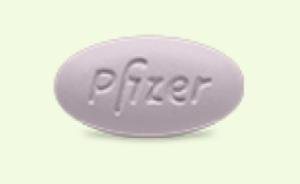Ibrance Disease Interactions
There are 5 disease interactions with Ibrance (palbociclib).
Multikinase inhibitors (applies to Ibrance) lung toxicity
Moderate Potential Hazard, Moderate plausibility. Applicable conditions: Interstitial Pneumonitis, Pulmonary Impairment
The use of certain multikinase inhibitors has been associated with pulmonary toxicity. Serious cases of interstitial lung disease (ILD), including fatal cases and interstitial pneumonitis or pulmonary fibrosis have been reported. Caution is recommended when using these agents in patients with a history of interstitial pneumonitis or pulmonary fibrosis or those patients presenting with acute onset of new or progressive unexplained pulmonary symptoms such as dyspnea, cough, and fever pending diagnostic evaluation. If ILD is confirmed, these agents should be permanently discontinued and appropriate measures should be instituted. Treatment should be immediately withheld in patients diagnosed with ILD/pneumonitis and permanently discontinued if no other potential causes of ILD/pneumonitis have been identified.
References
- (2011) "Product Information. Vandetanib (vandetanib)." Astra-Zeneca Pharmaceuticals
- (2011) "Product Information. Zelboraf (vemurafenib)." Genentech
- (2013) "Product Information. Mekinist (trametinib)." GlaxoSmithKline
- (2014) "Product Information. Zykadia (ceritinib)." Novartis Pharmaceuticals
- (2014) "Product Information. Zydelig (idelalisib)." Gilead Sciences
- (2015) "Product Information. Alecensa (alectinib)." Genentech
Palbociclib (applies to Ibrance) hepatic impairment
Moderate Potential Hazard, Moderate plausibility. Applicable conditions: Liver Disease
Based on a population pharmacokinetic analysis with palbociclib mild hepatic impairment had no effect on the exposure of palbociclib. Close monitoring is recommended when using this agent in patients with moderate or severe hepatic impairment as the pharmacokinetics of palbociclib have not been studied in these patients. Dose modification of concomitant medications may be needed based of hepatic impairment.
References
- (2015) "Product Information. Ibrance (palbociclib)." Pfizer U.S. Pharmaceuticals Group
Palbociclib (applies to Ibrance) neutropenia
Moderate Potential Hazard, Moderate plausibility. Applicable conditions: Fever
The use of palbociclib may cause neutropenia, including febrile neutropenia and neutropenic sepsis. It is recommended to monitor complete blood counts prior to starting treatment and at the beginning of each therapy cycle with palbociclib, as well as on Day 15 of the first 2 cycles, and as clinically indicated thereafter. Dose interruption, dose reduction, or delay in starting treatment cycles is recommended for patients who develop Grade 3 or 4 neutropenia. Care and close monitoring is recommended, in particular for any episodes of fever.
References
- (2015) "Product Information. Ibrance (palbociclib)." Pfizer U.S. Pharmaceuticals Group
Palbociclib (applies to Ibrance) premenopausal
Moderate Potential Hazard, Moderate plausibility. Applicable conditions: Premenopausal Anovulation
Pre/perimenopausal women treated with the combination palbociclib plus fulvestrant therapy should be treated with luteinizing hormone-releasing hormone (LHRH) agonists according to current clinical practice standards. Care and close monitoring is recommended.
References
- (2015) "Product Information. Ibrance (palbociclib)." Pfizer U.S. Pharmaceuticals Group
Palbociclib (applies to Ibrance) renal impairment
Moderate Potential Hazard, Moderate plausibility. Applicable conditions: Renal Dysfunction
Based on a population pharmacokinetic analysis with palbociclib mild and moderate renal impairment had no effect on the exposure of palbociclib. Close monitoring is recommended when using this agent in patients with severe renal impairment as the pharmacokinetics of palbociclib in these patients have not been studied.
References
- (2015) "Product Information. Ibrance (palbociclib)." Pfizer U.S. Pharmaceuticals Group
Ibrance drug interactions
There are 455 drug interactions with Ibrance (palbociclib).
Ibrance alcohol/food interactions
There is 1 alcohol/food interaction with Ibrance (palbociclib).
More about Ibrance (palbociclib)
- Ibrance consumer information
- Check interactions
- Compare alternatives
- Pricing & coupons
- Reviews (82)
- Drug images
- Latest FDA alerts (1)
- Side effects
- Dosage information
- Patient tips
- During pregnancy
- FDA approval history
- Drug class: CDK 4/6 inhibitors
- Breastfeeding
- En español
Related treatment guides
Drug Interaction Classification
| Highly clinically significant. Avoid combinations; the risk of the interaction outweighs the benefit. | |
| Moderately clinically significant. Usually avoid combinations; use it only under special circumstances. | |
| Minimally clinically significant. Minimize risk; assess risk and consider an alternative drug, take steps to circumvent the interaction risk and/or institute a monitoring plan. | |
| No interaction information available. |
Further information
Always consult your healthcare provider to ensure the information displayed on this page applies to your personal circumstances.


